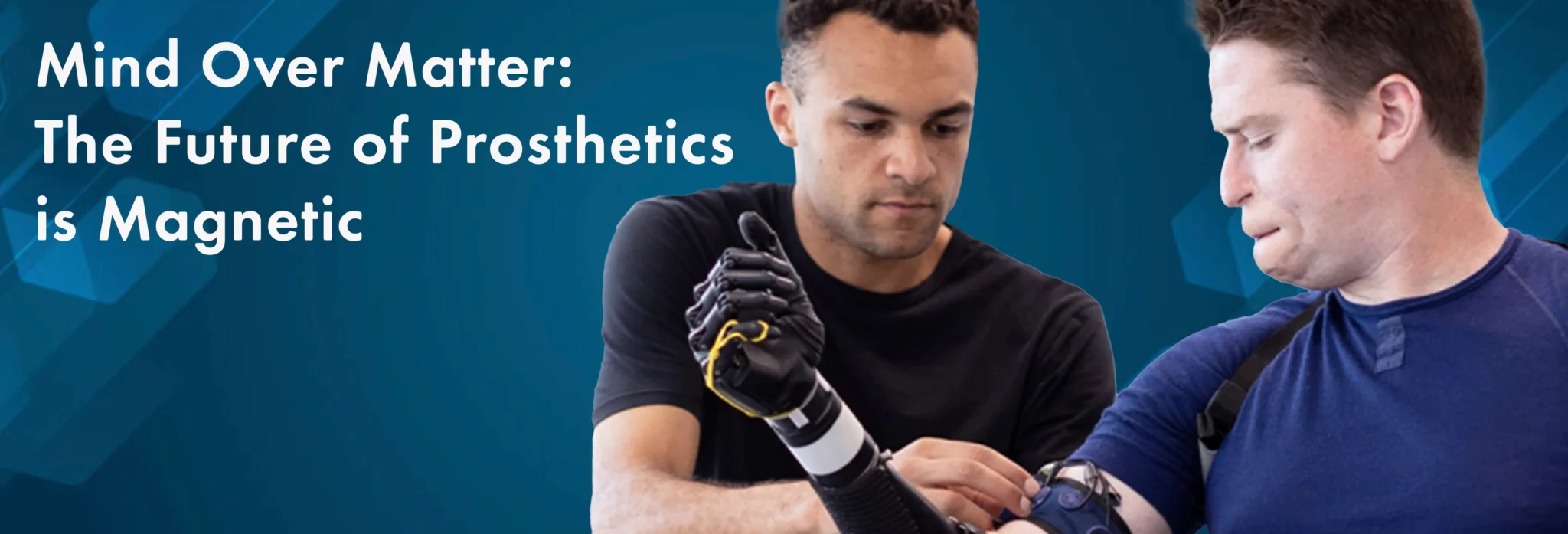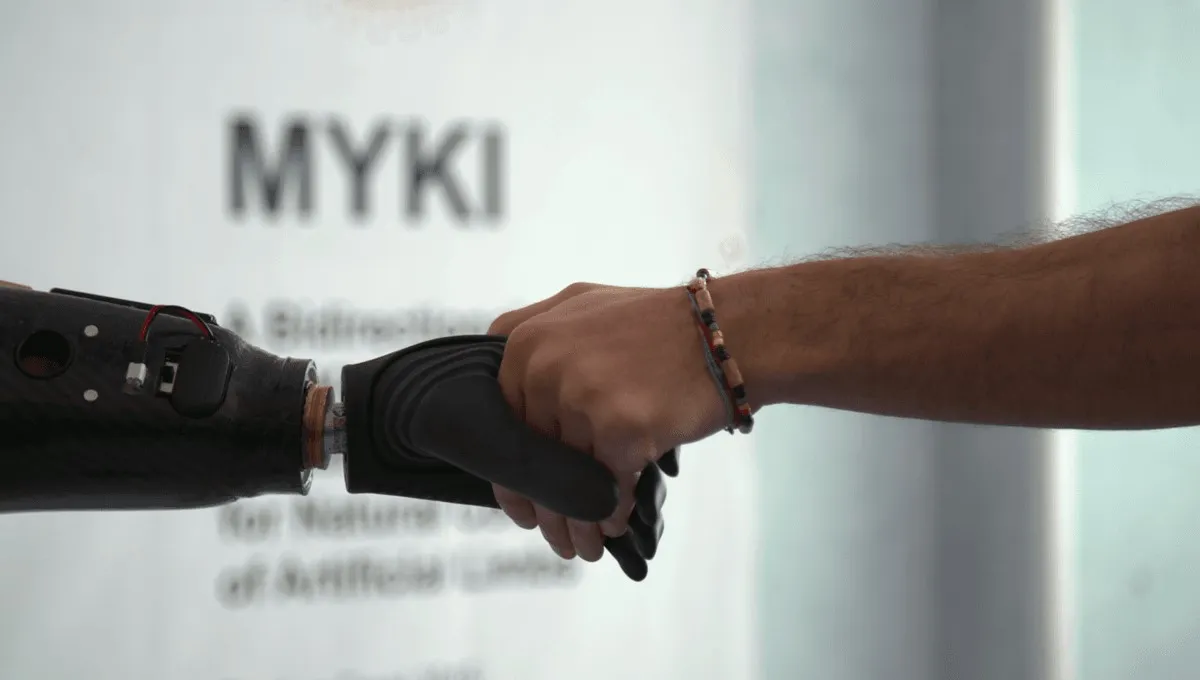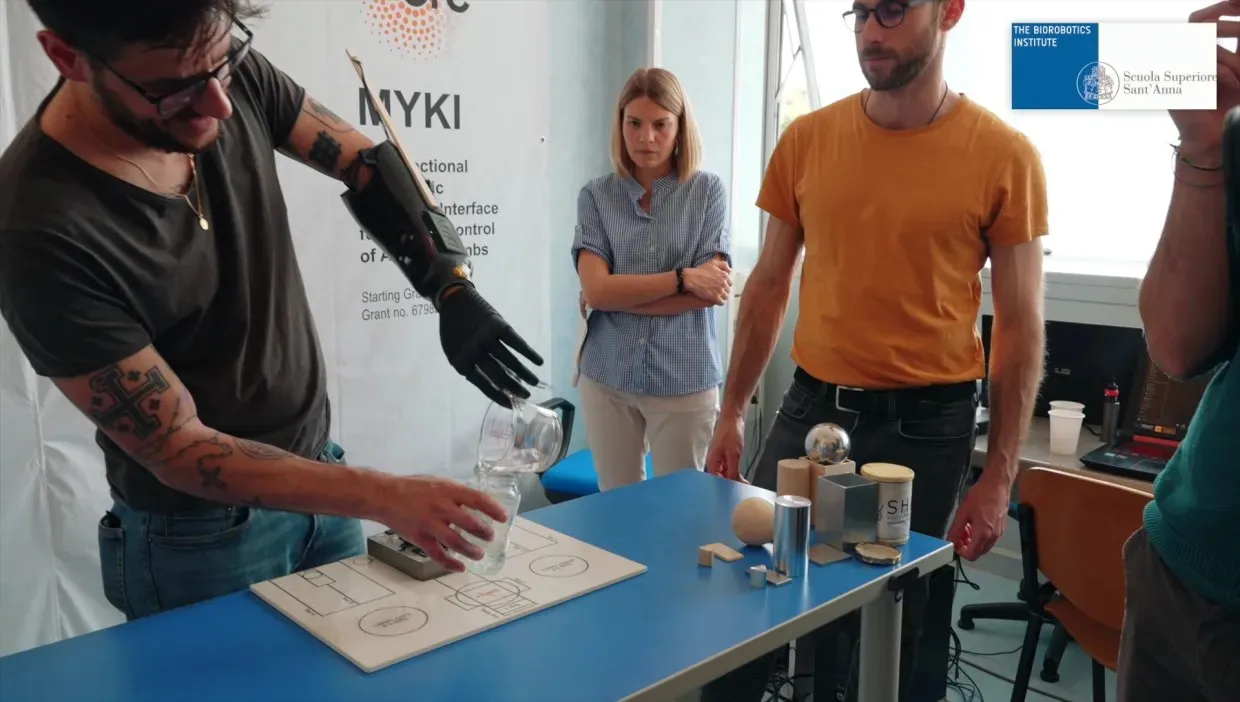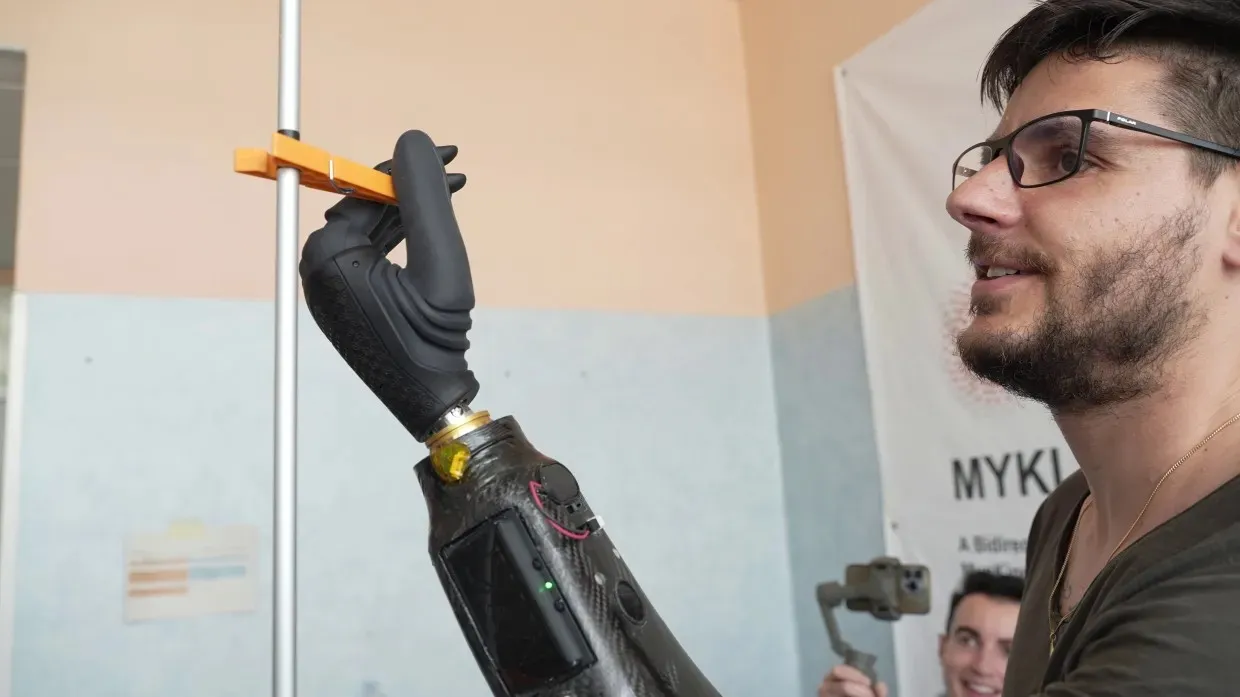

By: Asal Taheri
Researchers have successfully developed an advanced prosthetic hand that allows amputees to control it using their minds. This prosthetic hand enables precise and natural movements using magnets and complex algorithms. This significant achievement results from the research team’s efforts at the BioRobotics Institute of Scuola Superiore Sant’Anna in Pisa, coordinated by Prof. Christian Cipriani. The prosthetic hand designed by this team does not require wires or electrical connections and works solely using magnets and neural signals. This feature allows users to naturally perform a wide range of hand movements, such as opening jars, using screwdrivers, and picking up coins.
This technology works by first implementing small neodymium magnets, just a few millimeters in size, into the remaining muscles of the amputated arm. When the person intends to move their hand, nerve signals are sent to the muscles, causing the magnets to move. Sensors detect the movement of the magnets and convert them into digital signals. These digital signals are sent to the Mia-Hand robotic hand developed by the spin-off Prensilia, causing its fingers to move. The advanced algorithms used in this system allow for precise control of force and finger movement. In this way, amputees can easily perform everyday tasks such as opening doors, using tools, and even doing delicate work like picking up small objects.
The results of tests on the first patient in this project have been promising. Daniel, a 34-year-old Italian man who lost his left hand in September 2022, was selected as a volunteer for the study due to his ability to feel his missing limb still and have muscle responses corresponding to his intentions. After undergoing surgery in April 2023 to implant six small magnets into his residual forearm muscles, Daniel used the prosthesis for six weeks. The surgery was performed at the Azienda Ospedaliero-Universitaria Pisana (AOUP), thanks to a collaborative team led by Dr. Lorenzo Andreani. The results of this trial were presented in the scientific journal Science Robotics and represent a significant step forward for the future of prostheses. “This result rewards a decades-long research path. We have finally developed a functional prosthesis that meets the needs of a person who has lost a hand,” says Cipriani.
Myokinetic Control for Natural Movement
The pyrokinetic control system developed by Cipriani’s team decodes motor intentions through implantable magnets in residual muscles. This innovative approach is part of the MYKI project funded by the European Commission through an ERC Starting Grant. The idea is to utilize small magnets implanted in residual muscles to translate muscle contractions into commands for opening and closing fingers. “There are 20 muscles in the forearm, many of which control hand movements. Many people who have lost a hand continue to feel it as if it is still there,” Cipriani explains.
During Daniel’s trial, he could control finger movements effectively enough to perform various everyday actions—such as unscrewing a water bottle cap, cutting with a knife, tying shoelaces, and even manipulating fragile objects like eggs and plastic cups with controlled grasping force. “This system allowed me to recover lost sensations and emotions: it feels like I’m moving my own hand,” Daniel remarked.
Future Directions
The global prosthetic market is experiencing significant growth, projected to reach approximately $5 billion by 2025, presenting substantial opportunities for companies to develop advanced technologies like this mind-controlled prosthetic hand. Investors are increasingly interested in health tech innovations that promise to enhance quality of life, which could attract venture capital to scale production and improve technology. Ongoing efforts to reduce production costs are crucial for making these prosthetics accessible to a broader audience, as advancements may lead to economies of scale that lower consumer prices.
Additionally, integrating such advanced prosthetics into healthcare systems will depend significantly on insurance coverage policies; insurers are beginning to recognize the value of innovative prosthetic solutions, paving the way for broader acceptance and use in clinical settings. With further development, researchers hope they will produce prosthetics with even more advanced capabilities and sensory feedback mechanisms, leading to enhanced user experiences and greater functionality in everyday tasks. Overall, this achievement demonstrates that technology can help improve the quality of life for individuals and create a brighter future.







There is no doubt that technology can and will make a significant impact on humanity, particularly in the field of medicine. The development of prosthetics will undoubtedly greatly enhance the lives of individuals with disabilities. These advancements undoubtedly improve mobility and empower people to lead more independent and fulfilling lives. Innovation in this sector is making a real difference – it’s inspiring to see it!
It is a great combination of medical science, engineering and art that gives a good sense of life to disabled patients
It truly is marvelous how technology has gone so far and is improving so many lives already! Im curious to see where this development of prosthetics will go later in the future.
This technology will surely help a lot of people. I can’t wait to see what the future holds for us.